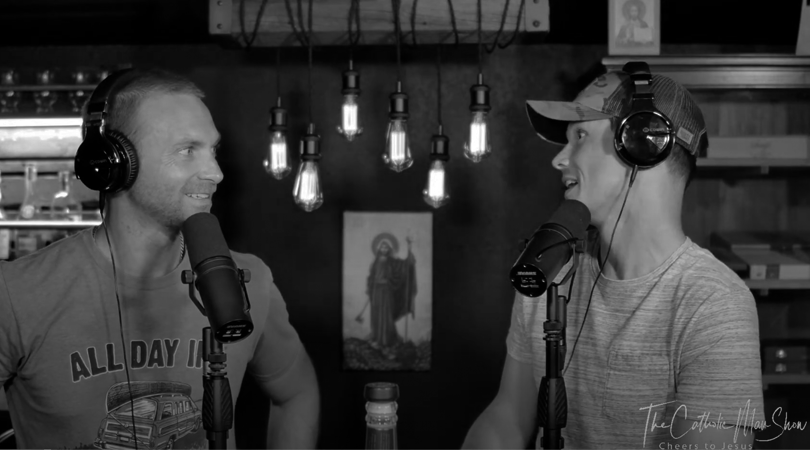The Catholic Man Show - Intro to the Devout Life

We want to grow in holiness. We want to grow in our relationship with our Lord. But how do we do it? Let’s see what the spiritual master, St. Francis de Sales, has to say.
About our drink:
Iowa- Templeton Rye 10 Year Reserve, a limited production, is a true expression of what American Rye can become with each release bottled from a hand-selected single barrel. Awarded Double Gold Medal SF World Spirits Competition 2021 and earned Gold Medal SIP Awards 2021.
About our gear:
Intro to Devout Life by St. Francis de Sales
Written over 400 years ago, Introduction to the Devout Life is still one of the most popular books for those pursuing holiness. St. Francis de Sales explains how to turn that desire for sanctity into resolutions that yield grace-filled results.
Themes include:
- Pursuing a devout life whole-heartedly
- Incorporating prayer and sacraments into a busy
schedule - Growing in virtue
- Battling wisely against temptation
- Making spiritual progress through daily, monthly, and yearly exercises
Whether you are just beginning your spiritual journey or are more advanced in the spiritual life, you’ll be able to apply this timeless wisdom immediately. Let St. Francis de Sales illumine the path to holiness and strengthen your desire to walk that road with the Lord.
St. Francis de Sales (1567–1622) was the Bishop of Geneva and a renowned spiritual director. Preaching during the Counter-Reformation, he is estimated to have converted 70,000 Calvinists in his short lifetime. He was a fervent proponent of the universal call to holiness and spent much of his time guiding lay people on the road to sanctity. Declared a Doctor of the Church by Pope Pius IX in 1877, St. Francis is still helping to form saints through his many writings, of which Introduction to the Devout Life is the most famous.
About the Topic:
First Purification: From Mortal Sin
“One should not voluntarily nourish the will to continue and persevere in any kind of venial sin, because this would be too great a wickedness – to choose, knowingly, to keep in our conscience a thing so displeasing to God as a willingness to offend him.”
Comments
Post a Comment